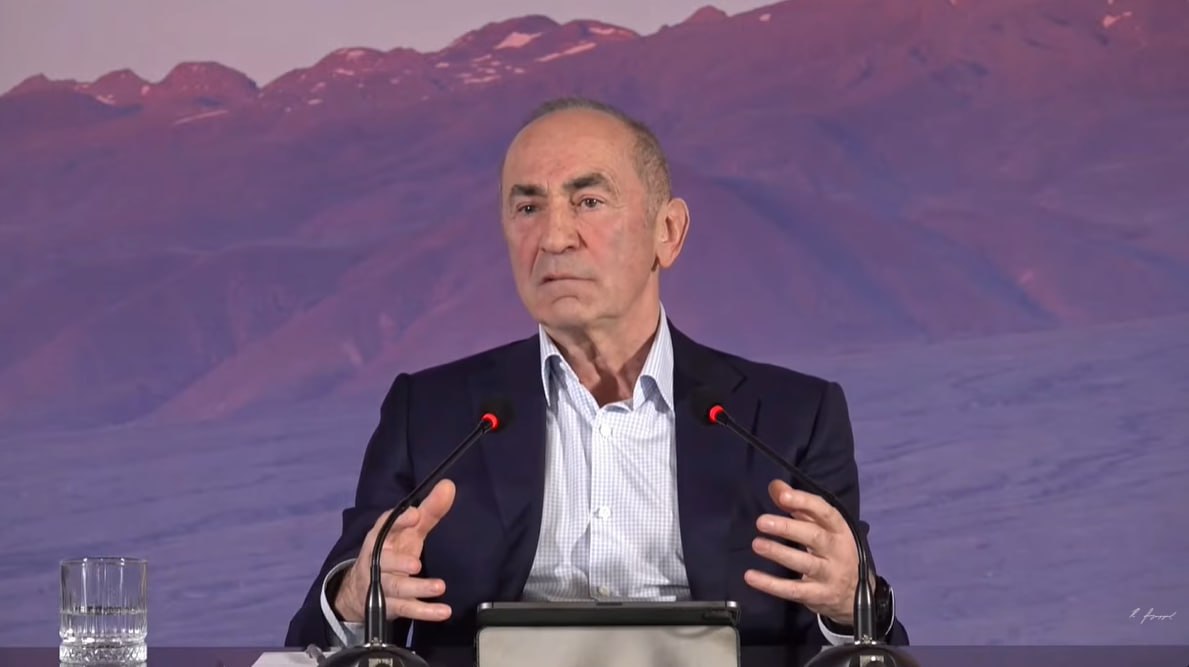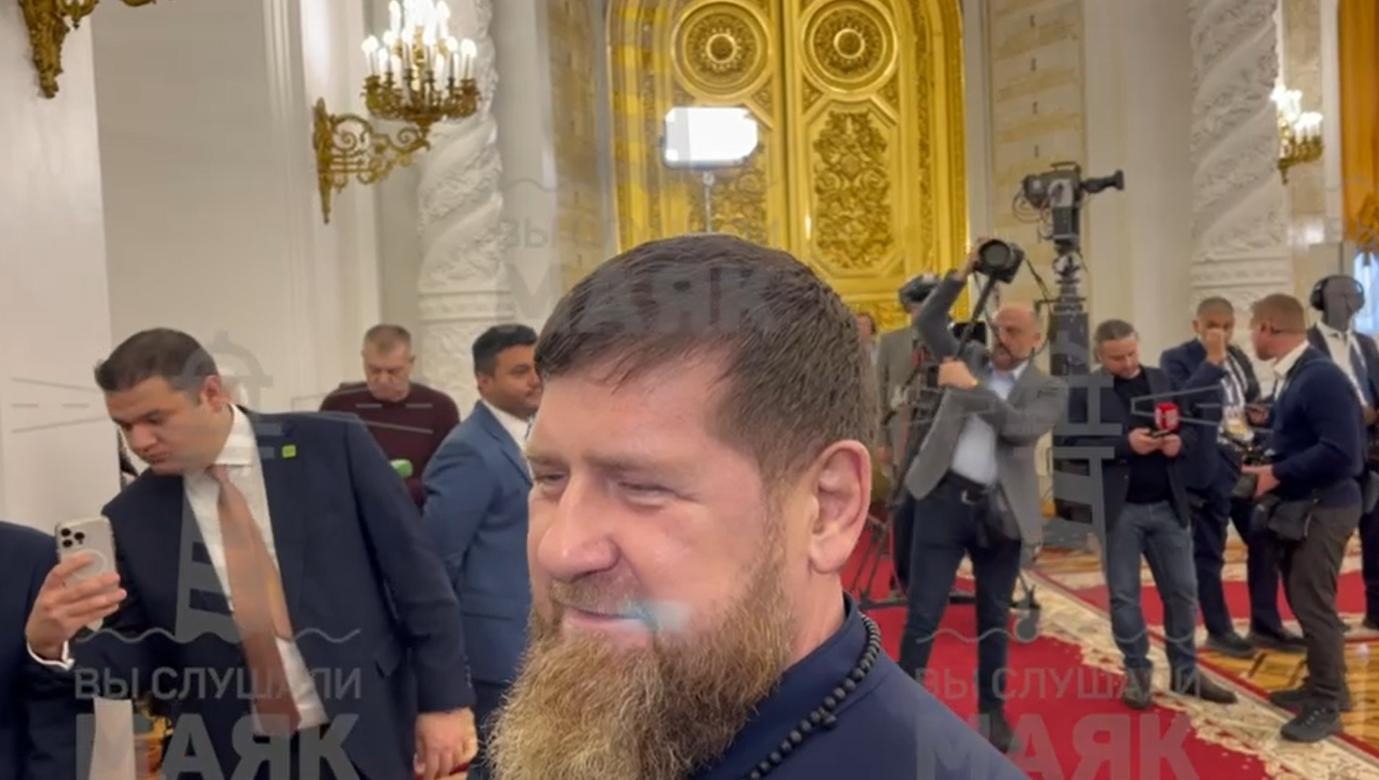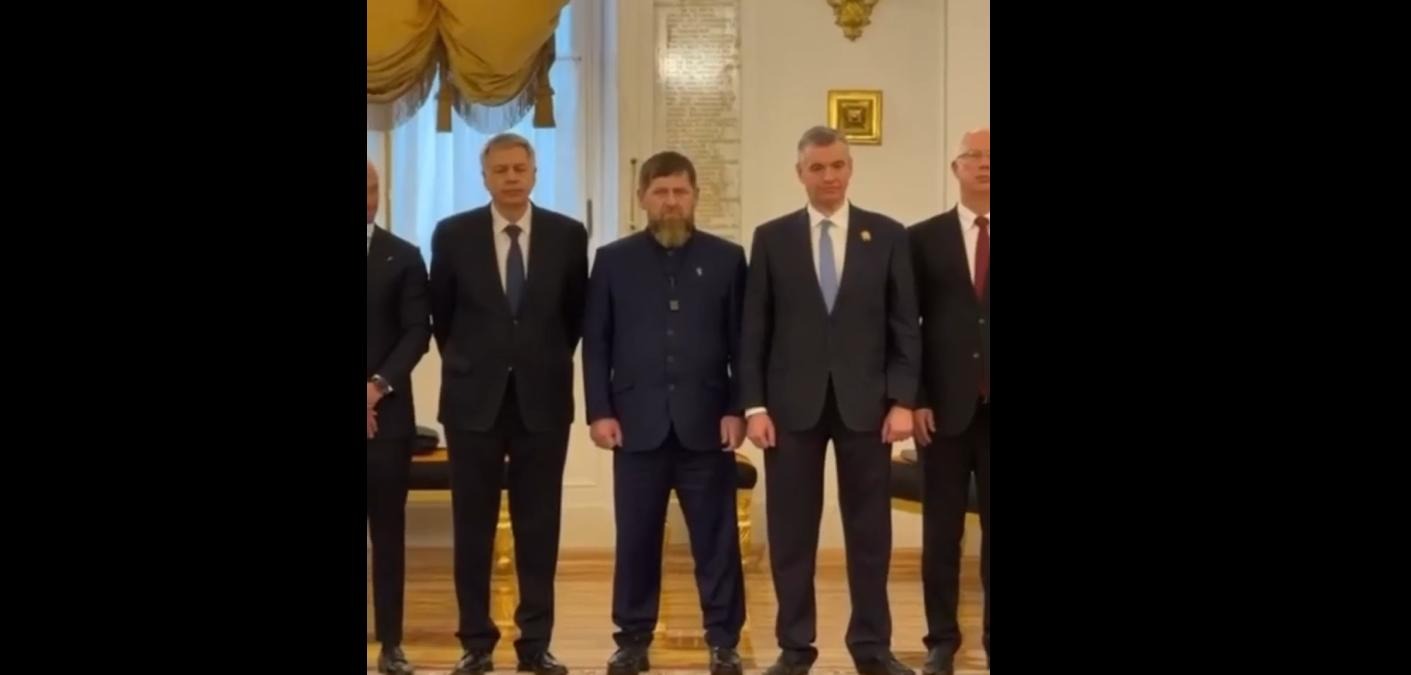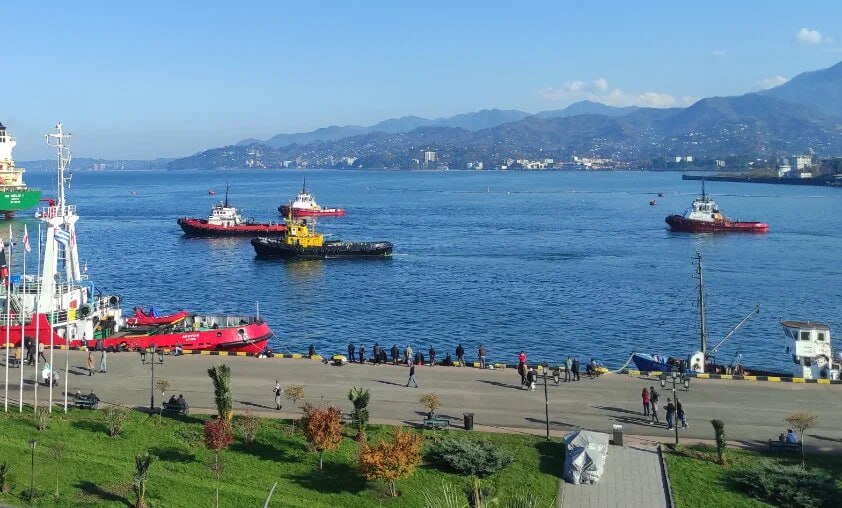Former Armenian President Robert Kocharyan warned against the current government's flippant attitude toward possible harsh responses from Moscow. He believes the authorities fail to grasp the scale of the potential impact Russia could have, including tariff revisions and export blockages.

September 15, 2001
***
From September 15 to September 17 inclusive, a “cleanup” was carried out in the village of Tsotsin-Yurt. The Russian military has set up headquarters on the territory of a former tractor brigade, which recently housed a car repair station. Having summoned representatives of the administration, clergy and elderly people, they declared that they must “pass through the computer” men aged 14 to 60 years. The military warned that they would deliver by force anyone who did not come voluntarily.
Soon, local residents began to gather at the indicated place in groups and alone. At the same time, searches began in the village, which soon resulted in robberies. The men and teenagers who remained in the houses were detained by the military and taken to the headquarters location. They were almost always beaten along the way.
According to various sources, from 700 to several thousand village residents were “filtered.” Some of them were released on the first day, others were left in the field until the end of the operation. The latter were forced to kneel all the time. Those who tried to change their position or just moved out of fatigue were beaten. They were taken to interrogations in groups. In front of the headquarters, people were again forced to kneel, and then one by one they were called in for a “conversation.” They asked about the militants, what they did before the war, whether they took part in it, etc., and then they checked their passports. Then the whole group was lined up in one line, along which a car with a “living computer” in the cabin drove by, i.e. an informant, apparently from among local residents.
According to various sources, after the completion of the operation, from 22 to 37 people were taken to the village of Kurchaloy. Among them were two women (one with a baby, the other pregnant). Subsequently, all the detainees, except six people, managed to return home. Aslambek (Islam) Yusupovich Dashazaev, born in 1980, who lived at the address: Shosseynaya St., 9, and Mokhadi Ibuevich Khamzatov, born in 1974 (1971), whose house was on Sovetskaya St., went missing. According to local residents, of the selected people, all but these two were thrown out in different places in the vicinity of the village. Together with Aslambek Dashazaev and Mokhadi Khamzatov, brothers Usman and Valid Dzhambekov were detained and held on the territory of the headquarters. When they returned the next day, they said that they had seen them there. However, the military categorically refused to admit that the disappeared people, contrary to numerous testimonies from their family members and neighbors, were ever detained at all.
Relatives tried to organize a search, contacted the prosecutor's office and the department for ensuring the activities of the special representative of the President of the Russian Federation. It is known that even a criminal case was opened regarding the disappearance of Aslambek Dashazaev during the “cleansing” (No. 75028 under Article 126, Part 1 of the Criminal Code of the Russian Federation). However, “due to the impossibility of identifying the persons subject to prosecution” (Article 195, paragraph 3 of the Code of Criminal Procedure of the RSFSR), it was suspended on May 18, 2002.
In October 2002, the prosecutor's office checked information about the abduction of Mokhadi Khamzatov. But for some reason, no criminal case was opened on this fact.
According to available information, criminal cases have been initiated against four more Tsotsin-Yurt residents. What the Russian authorities were going to accuse them of is unknown to Memorial Human Rights Centre.
***
At a meeting with an employee of the Human Rights Center “Memorial” Libkan Bazaeva, the chairman of the Staropromyslovsky District Court of Grozny, Bakar Dabachievich Magomadov, gave a general analysis of the work of the republic’s courts. According to him, at that time they considered only civil cases concerning the reinstatement of people at work, the collection of arrears of wages and pensions, as well as cases to establish a legal fact. Criminal cases were sent by the prosecutor's office to the Supreme Court of the republic, which distributed them according to jurisdiction. The main category of cases under consideration are cases of storage, use and sale of drugs, theft, possession of firearms, etc., where sentences do not exceed five years. Crimes under more serious articles were sent for consideration outside Chechnya. For example, in Rostov-on-Don or Stavropol.
The investigation of crimes committed by the Russian military against the civilian population was conducted by the military prosecutor's office. Hearings of cases took place in military courts.
The judicial system was not restored in four regions of the republic: Sunzhensky, Achkhoy-Martan, Shelkovsky and Shatoy. The first two were served by the Staropromyslovsky court, the rest, respectively, by the Zavodsky and Vedensky.
But the existing courts were not where they should have been. Thus, the Staropromyslovsky court was located in the village of Beni-Yurt, located several tens of kilometers from Grozny. Long trips in the conditions of a warring republic were not very attractive to local residents. There were frequent skirmishes and artillery shelling on the roads. In addition, the Russian command set up checkpoints almost every kilometer, passage through which was associated with the loss of both time and money.
From the book “People Live Here”, Usam Baysaev, Dmitry Grushkin, 2006.



